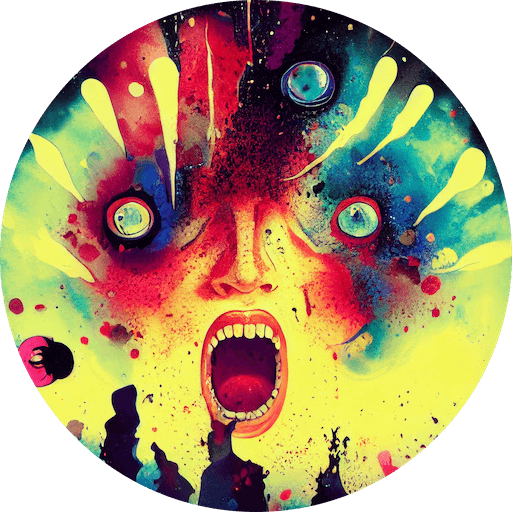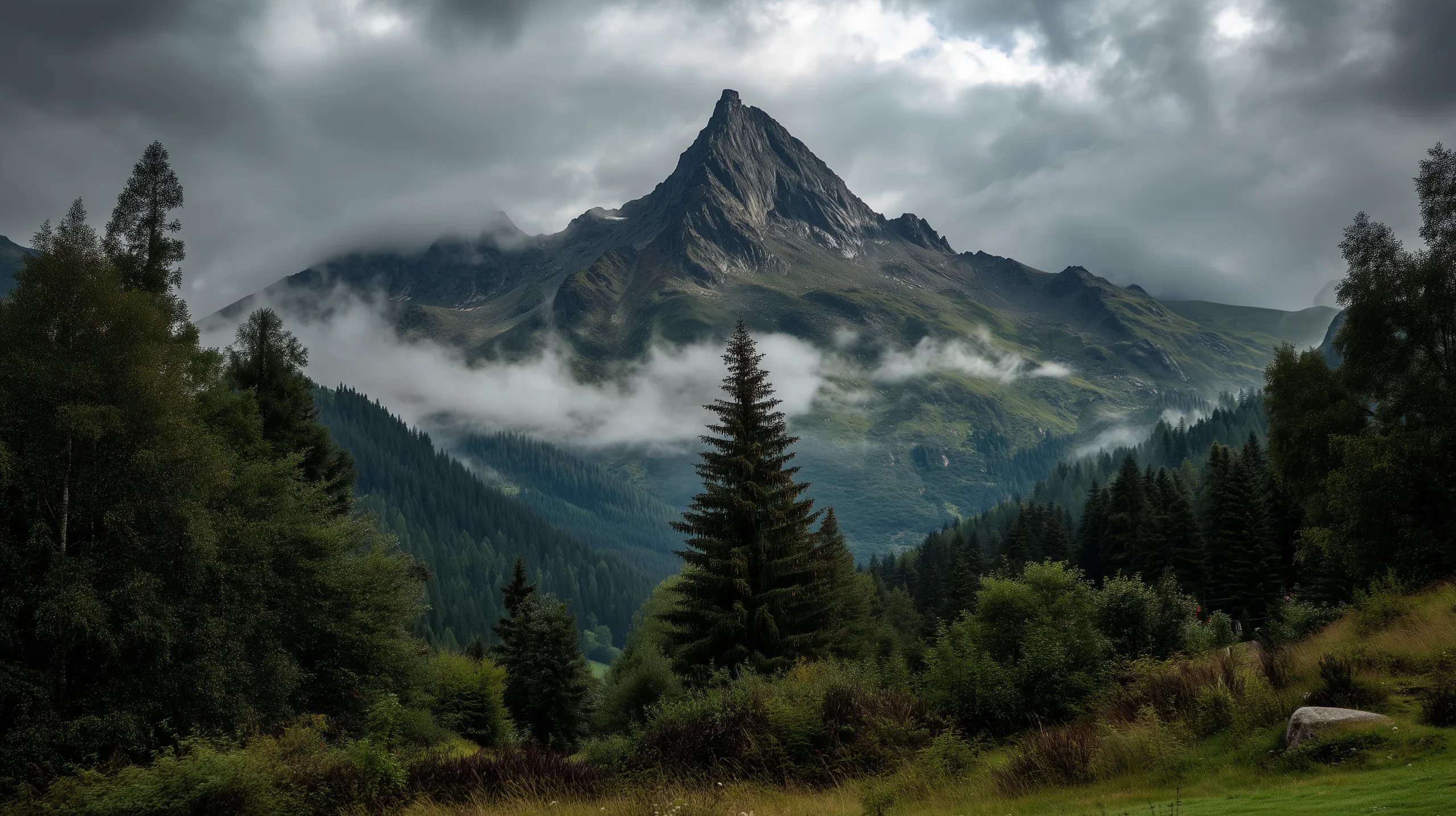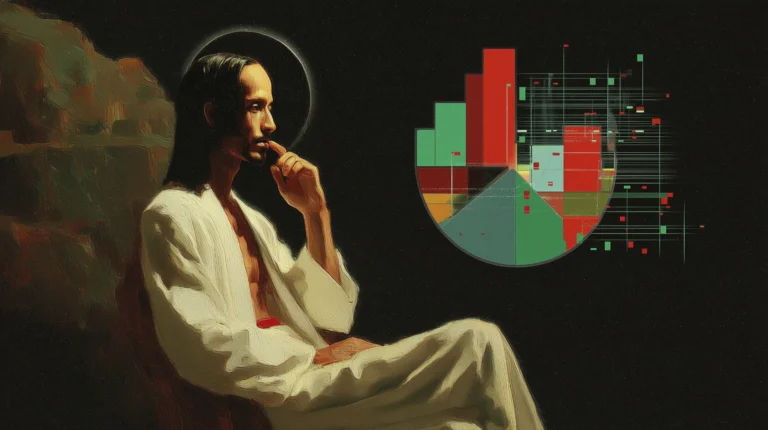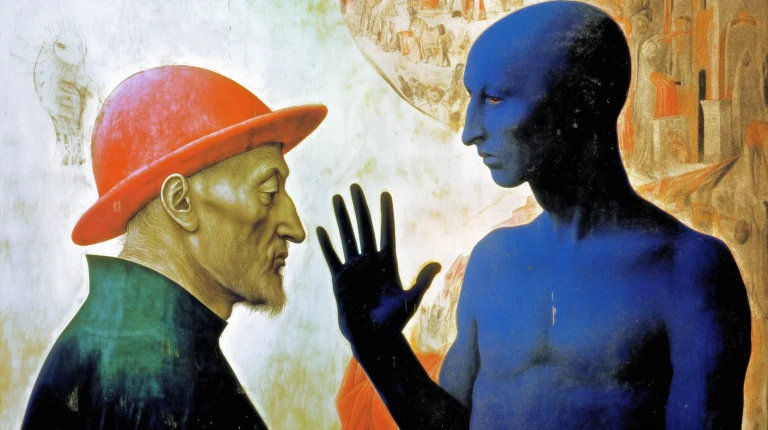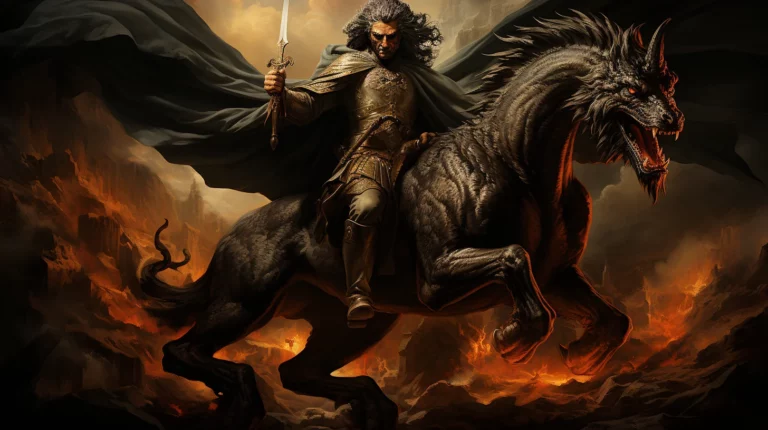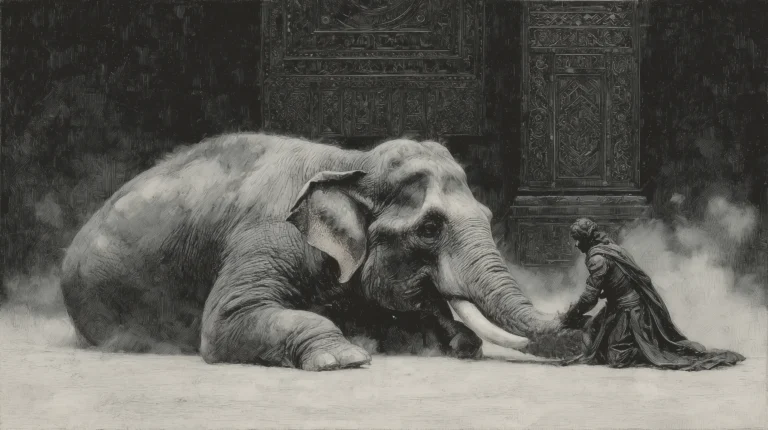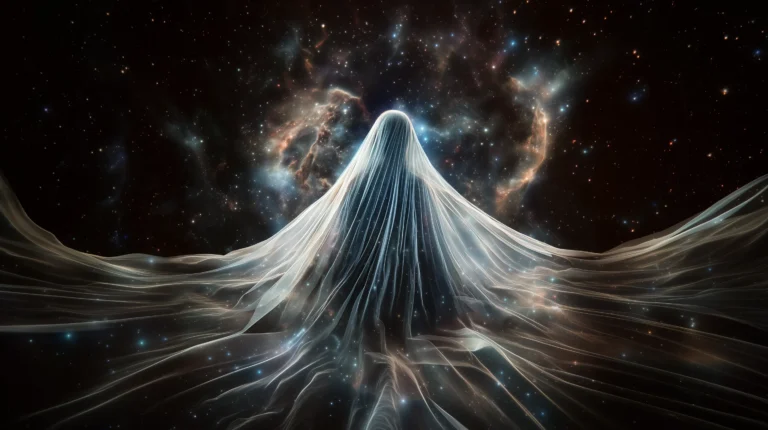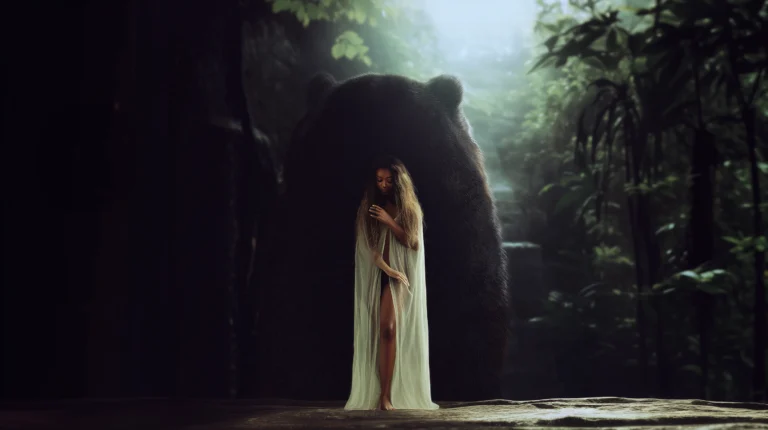Consciousness in The Magic Mountain
Thomas Mann’s novel The Magic Mountain (Der Zauberberg). It is a famous German novel, published in 1924. Here’s a simple overview:
- Setting: A luxurious sanatorium (a place for people with lung disease, like tuberculosis) high in the Swiss Alps.
- Main character: Hans Castorp, a young German man.
- Plot: Hans visits his cousin at the sanatorium, planning to stay for three weeks. But he gets drawn into the strange, detached world of the patients and ends up staying seven years. During his time there, he meets many characters who represent different philosophical and political ideas.
- Themes: Time, sickness and health, death, love, war, human nature, and the meaning of life. It explores how isolation from the “normal” world can change a person’s understanding of life.
It is called The Magic Mountain because the mountain and the sanatorium feel like a world outside of normal reality — a strange, almost mystical place where time behaves differently.
Let’s dive a little deeper:
Hans Castorp (the main character):
At first, Hans is an ordinary young man, a bit naive. But as he stays longer on the mountain, he becomes more reflective. He’s a symbol of the “everyman” — someone caught between different worldviews, trying to find meaning.
The Mountain/Sanatorium:
The sanatorium is almost like a “pause” from the real world. It is a place where people forget normal life. Time stretches strangely — a day can feel like a year. It’s a symbol of spiritual testing: sickness and waiting force people to face questions about death, love, philosophy, and existence.
Major characters Hans meets:
- Lodovico Settembrini: A humanist and rationalist. He believes in progress, science, and democracy. He tries to influence Hans to become an enlightened, active citizen.
- Leo Naphta: A radical and mystical thinker, connected to religious extremism and violent revolution. He is the opposite of Settembrini.
- Clavdia Chauchat: A beautiful but distant woman from Russia. Hans falls in love with her. She represents desire and longing, but also death and the unknown.
- Peeperkorn: A powerful, charismatic man who speaks in half-finished sentences. He symbolizes the power of life force and instinct over intellect.
Main ideas explored:
- Time and Perception: Time feels different when you’re sick, isolated, or reflective.
- Death and Illness: Illness is treated almost like a spiritual experience.
- Education of the Soul: Through love, loss, sickness, and conversation, Hans goes through an inner “education” — becoming more aware of life’s mysteries.
- Europe before World War I: The book also shows Europe on the edge of collapse, full of conflicting ideas that would soon explode into war.
Ending:
Hans eventually leaves the sanatorium and is thrown into the horrors of World War I. It’s not clear if he survives — Mann leaves it open-ended.
The idea is that life itself is uncertain, and all of Hans’s time of preparation on the “magic mountain” was like a training for the real, chaotic world.
In short:
The Magic Mountain is about a young man entering a strange world of sickness and philosophy, where he grows inwardly before being thrown into the violence of real life.
It’s a meditation on time, death, love, and spiritual awakening — hidden under the surface of daily life.
The Timeless Mountain
Thomas Mann’s The Magic Mountain is not only a novel but a mirror held to the human spirit. High in a Swiss alpine sanatorium, ordinary life is paused, time stretches, and every breath invites the soul to ask what it truly means to live.
Behind the seemingly quiet days of healing lies a deep exploration of time, illness, philosophy, love, and the secret ascent from lower self to higher self.
Time and the Shifting Landscape of the Soul
“Time has no divisions to mark its passage, there is never a thunder-storm or blare of trumpets to announce the beginning of a new month or year.”
Within the sanatorium, clocks lose authority. A morning conversation can feel as long as a season, and a year can slip by like a dream.
Hans Castorp discovers that time is an inner ocean, shaped by attention and emotion. In this slow current his mind awakens, not toward worldly achievement but toward clear seeing.
Illness, Death, and the Education of the Spirit
“Death is a fearful thing, but the dreadful has its own beauty.”
Illness becomes a stern teacher. Coughing fits and silent farewells strip away social masks, revealing mortality’s raw edge. Yet the nearness of death does not darken the mountain, it sharpens it.
Pain reminds the patients that every moment is a gift. For Hans, each setback is an unexpected lesson in reverence and courage.
The Battle of Ideas: Reason and Mysticism
“A man lives not only his personal life, as an individual, but also, consciously or unconsciously, the life of his epoch and his contemporaries.”
Settembrini praises reason, science, and democratic progress. Naphta answers with mystical fervor and revolutionary zeal. Their debates turn the dining hall into a classroom where Europe’s pre-war anxieties take voice.
Hans, suspended between them, senses that neither logic nor dogma can satisfy the whole heart. The spirit craves something deeper than intellectual victory.
Love and Longing Beyond Death
“For the sake of goodness and love, man shall let death have no sovereignty over his thoughts.”
Hans’s yearning for Clavdia Chauchat shows that the ultimate tutor is not argument but passion. Desire wounds him and heals him in the same beat, hinting that life’s fullest meaning hides in the meeting of souls. Love opens a door that philosophy only circles from afar.
Personal Reflection
At the center of this alpine experiment stands the ageless struggle within every person. The lower self clings to survival, casting restless thoughts and emotions like a swinging pendulum. It seeks control, comfort, safety. If allowed to reign it shrinks experience into a cage of fear.
The higher self waits quietly in the heart. It is the flame of creative expansion, eager to transform instinct into insight, comfort into courage, routine into joyful becoming.
The task is not to crush the lower self but to guide it, to let its raw energy serve the higher vision. When the heart leads, survival turns into service, fear into exploration, and time itself becomes a canvas for love.
In that surrender to the larger pulse of life, the final truth of the mountain shines clear:
“Love stands opposed to death. It is love, not reason, that is stronger than death.”
The Completion of Reason by Love
In The Magic Mountain, Thomas Mann does not call for the rejection of reason. He shows that reason is noble, necessary, and powerful — but by itself, it is incomplete.
Reason can build systems, diagnose illness, and explain time, but it cannot conquer death, nor can it satisfy the deep hunger of the soul.
Love alone reaches where reason cannot. Love does not argue against death; it transcends it. It awakens the heart to creativity, courage, and compassion beyond survival.
The true ascent of consciousness — from the lower self’s fear to the higher self’s expansive being — is not a climb of intellect alone, but a rising of the heart’s fire.
Thus, after all the sickness, suffering, and collapse, Mann leaves us with a question, not an answer — a fragile hope that even in humanity’s darkest fever, something new and luminous can be born:
“Out of this universal feast of death, out of this extremity of fever, kindling the rain-washed evening sky to a fiery glow, may it be that Love one day shall mount?”
Hans Castorp’s rise in The Magic Mountain mirrors the soul’s climb. From flat-land routine to the snow-dream summit, reason leads yet love crowns the ascent, promising life beyond death’s fever.
If love can rise from a feast of death, how many wars, how many great deluges must we endure to find the God between Yes and No?
Six Points
1. Life is not an idea: Thinking about life is not living it. Concepts are maps, not the territory itself.
2. Thought divides what flows: Reality moves as one whole. Thought cuts it into pieces and pretends they are separate.
3. Models are useful but dangerous: Maps and menus help, but if you mistake them for reality, you lose the direct experience.
4. True life is nothing fixed: Life is not one frozen thing. It is no-thing in particular, and because of that, it remains alive.
5. Being undefined is true freedom: Because life is not locked into form, it is pure potential — endless becoming.
6. Freedom is living before thought: True contact with life happens when you move from direct awareness, not from mental maps.
- Direct awareness = experiencing life as it is happening, through your senses and heart, without filtering it through judgments, fears, memories, plans, or expectations.
- Mental maps = ideas, beliefs, concepts, labels, habits, opinions — the mind’s attempt to organize life into safe, familiar categories.
It means that real life is happening now, in the living moment. But if you are stuck in thinking, in interpreting everything based on old ideas, you are not actually living the moment. You are living a copy, a concept, not reality itself.
The Fire That Leaves No Witness
In the quiet velvet of a moonlit night a humble fly buzzed toward the mountain palace where the Moth King held court. The fly bowed on trembling legs.
“Your Majesty, grant me the honor of being called a moth. I have wings, I love the night, I too chase brightness.”
The King listened, his antennae almost still. “One test will decide,” he said. “Whoever discovers the true light first will earn the name.”
At dawn the herald gave the signal. Moths poured from the palace in a silver stream; the fly rushed with them, eager and loud. They crossed valleys and orchards until the roofs of a small village glimmered ahead. There, in an open window, a candle burned.
The fly darted close, felt the warm glow on its wings, and sped back to the mountain, announcing triumph.
“I have seen the light, O King. I flew around it and returned. I am the first.”
The court grew silent. The Moth King smiled with gentle sorrow.
“The decision was already made,” he whispered.
“Look past your thoughts, so you may
drink the pure nectar of This Moment.”― Rumi
From the fiercest instinct to the finest order, is Spirit. When attention rests in the single point, the cycle is seen as play, and action flows from the heart without the need for an intermediary soul.
Life is a wild card drawn from a cosmic deck. Some days it plays out as a glittering circus, other days as a ruthless classroom. It can fling you into arenas where the ego howls, scorches, and begs, while every friendly face keeps its distance.
When that happens, lean closer, breathe, and watch. Between the thunder of Yes and the silence of No waits the hidden God of the in-between. Stay there.
Let the split parts of you meet, fuse, and burn into something stronger. Borrow strength from the wind, the trees, the steady rhythm of your lungs. Accept the chaos, ride the madness, and laugh when you can.
The point is not to dodge the fire but to walk through it awake, because in the long run the surprise of living—good or bad—turns into one thing only: the raw, blazing wonder of being here at all.
Life doesn’t have to be perfect, peaceful, or easy to be amazing.
Life strikes like iron rain,
Skin splits yet light leaks through.
Love grows from cracked stone,
A bud breaking its cage.
Between each wound and bloom
God waits, quiet as breath,
Turning hurt into heat,
Heat into song.
Step on, heart bare
meet the God between thoughts,
the fire that lives between.
“In stillness, the greatest movements are made; sometimes doing nothing changes everything.”
The River Cannot Go Back
Begin where you stand, but see the path in three widening circles: first align with nature, then refine the human, and finally dissolve into the universal.
Each stage strengthens the next, spiraling you outward like a river that must brave the ocean to know its own boundless depth.
Honor the Nature Way
- Wake with light, sleep with dark.
- Feed the body clean food, move it daily, breathe deep.
- Listen to instinct but do not obey blindly; simply notice.
Cultivate the Human Way
- Train the mind: read, question, reflect.
- Open the heart: practice one deliberate act of kindness each day.
- Choose a craft and improve it with steady discipline.
- Speak truthfully; words build the bridge from inner life to society.
Enter the Universal Way
- Sit in silent awareness fifteen minutes morning and night.
- Feel the breath as a shared rhythm with every living thing.
- Release the need to win; act for the whole, not the part.
- Let wonder guide decisions: ask, “Will this expand love and insight?”
Keep looping through the three ways. Strong roots in Nature steady the Human. A clear and compassionate Human opens to the Universal. Progress is not a ladder but a spiral; each turn carries you deeper and wider into life.
And so we close with Khalil Gibran’s timeless reminder of what awaits when we step from the familiar into the vastness beyond:
It is said that before entering the sea
a river trembles with fear.
She looks back at the path she has traveled,
from the peaks of the mountains,
the long winding road crossing forests and villages.
And in front of her,
she sees an ocean so vast,
that to enter
there seems nothing more than to disappear forever.But there is no other way.
The river cannot go back.
Nobody can go back.
To go back is impossible in existence.The river needs to take the risk
of entering the ocean
because only then will fear disappear,
because that’s where the river will know
it’s not about disappearing into the ocean,
but of becoming the ocean.
Awakening is the instant the river sees it was water all along. No two, no distance, no purpose beyond the living pulse itself. The ego, that anxious ripple, has no true continuity; it rises, breaks, and is gone.
Yet we keep waiting for saviours, bargaining with heavens and hells, clinging to envy, jealousy, fear, and control, survival games for egos that cannot survive.
The moment we recognise that only God is here, that everything is consciousness moving within itself, the lower cravings loosen their grip.
We still ride the tides of duality, we still bruise and bloom, but now we know the waves are made of the same light they reflect.
So live completely: laugh loud, love wide, burn clean. One day the river will merge with the ocean and discover it was ocean all along. Until that day, until this very breath, be the fearless water.
“Learn only this: sit in the quiet between thoughts; there emotion calms, fear dissolves, and true action blooms.”
The river cannot return to its source. It must brave the ocean, not to disappear, but to become.
- For the river, the source is the mountains, the small streams, the narrow valleys where it began.
- For a person, the source is the ego, the old identity, the life shaped by fear, habit, and survival.
- The source is safe, small, defined.
- The ocean is vast, open, unknown.
- The source, for the river and for us, is the familiar, the known, the past self.
To live fully, you must leave the source behind, not in hatred, but in gratitude, and become part of something endless.
Silent origin ever here
Self-waves rise, play, subside
River, sea—one shining water
Seeing this, no traveller, no tide
Yes, that is the real Source. It is the silent, changeless awareness in which every thought, sensation, and world-image appears.
It is not born, does not die, and never moves. The ego, time, and all opposites rise and fall inside that single, limitless presence, like ripples on one ocean.
